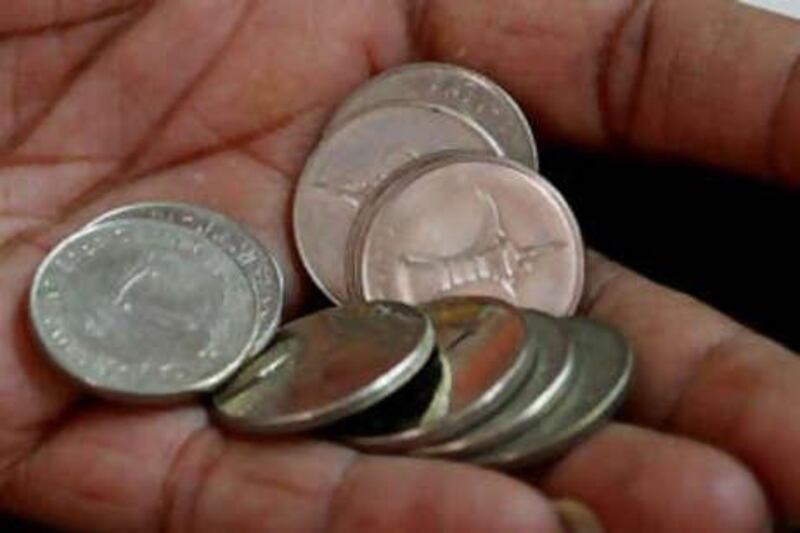The UAE's first universal tax is needed now more than ever because of the falling price of oil, a tax conference in Dubai was told yesterday. International and GCC economists said a value-added tax (VAT) on goods and services would act as "insurance" for oil-producing states. Oil prices have fallen from US$147 (Dh504) a barrel to US$64 during the ongoing financial crisis.
Yesterday's conference, organised by the Dubai Economic Council, was attended by customs officials, economic consultants and representatives of government departments, including the Ministry of Economy. Dr Vito Tanzi, a former director of fiscal affairs at the International Monetary Fund (IMF), said: "Under the worst circumstances, the revenue situation for most of these [GCC] countries could reverse rather quickly. The price of oil has been coming down, but also the global financial crisis will certainly have implications on returns from foreign assets. The best way to think of VAT is as an insurance against a potentially negative future."
Dr Abdulaziz Aluwaisheg, the director of the Economic Integration Department at the GCC, said oil revenue "can't be relied upon on a consistent basis". However, the proposed introduction of a tax on consumption has been widely condemned by people in the GCC struggling to cope with inflation. Two years ago, the Government, looking ahead to when customs revenue is reduced under GCC free trade agreements (FTAs) with trading partners such as the EU, India, China and Pakistan, commissioned Dubai Customs to investigate the feasibility of VAT for all emirates.
Subject to the introduction of the FTAs and the approval of a common tax system by GCC heads of state, VAT is likely to be introduced by 2012, three years later than the date first proposed, at a rate of five per cent throughout a GCC common market. The IMF estimates that revenue from customs duties represents less than one per cent of the UAE's total GDP. The revenue the UAE will earn from a five per cent VAT is estimated at 2.2 per cent of GDP.
Many UAE residents have questioned the need for an oil-rich country to collect extra revenue from taxes and warned that the loss of the Emirates' perceived tax-free status will be a psychological blow. GCC countries earn between 23 per cent and 73 per cent of their GDP from oil and gas revenues, the IMF estimates. Although the proposed five per cent VAT is lower than in many other countries - the rate in the UK, for instance, is 17.5 per cent - residents are likely to oppose any measure that could raise their bills.
Speakers at the two-day conference in the Grand Hyatt hotel sought to ease concerns, claiming VAT can be used as a financial tool to control inflation and to distribute extra revenue towards essential public services. "Inflation comes from many sources and VAT is not one of them," Dr Tanz said. "You can use the revenue from the VAT to help the poor." Dr Aluwaisheg added: "Contrary to popular views that VAT will contribute to inflation, in fact we perceive it as an important tool in controlling inflation."
The introduction of VAT in place of customs duties and the UAE's numerous "hidden" fees and charges means that prices on imported goods will stay roughly the same, speakers said. Small businesses with an annual turnover of less than a specific figure - expected to be about Dh3.67 million (US$1m) - would also be exempt, a condition that experts say would exclude a large number of people from the tax but have a minimal impact on revenue.
There are added fears that the GCC would suffer VAT fraud like that in several EU countries. Dr Ehtisham Ahmad, a senior adviser to the executive director at the IMF, said a harmonised tax administrative system and single rate throughout the GCC would minimise the threat. "What we have learnt from the EU experience is the importance of harmonisation," he said. "The model they put in place was faulty, the treatment of sectors was problematic, and the harmonisation of the tax administration didn't exist."
rditcham@thenational.ae





